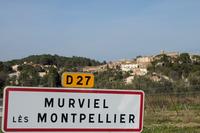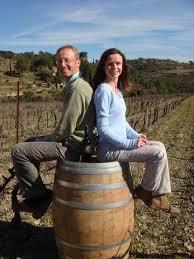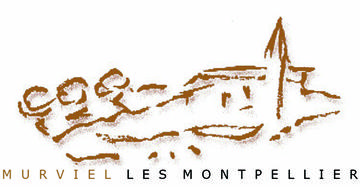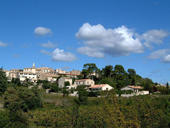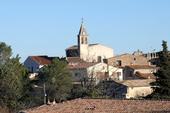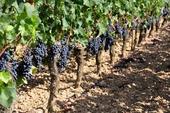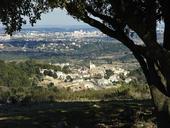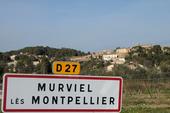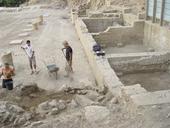Agriculture and Climate
Agriculture and Climate Change Session: Dialogue on Climate-resilient Farming Practices, Agroecology and Food Sovereignty
Summary:
This session will involve farmers, non-governmental organization staff, social and natural scientists in a dialogue on different perceptions of climate change and ways to foster climate resilience and food sovereignty which take into account ecological context, social inequalities and local knowledge. As an off-site session, we will have opportunity to interact with local residents in the village of Murviel, outside Montpellier. We will then have 9 presentations, with a wide geographical representation, including Ghana, Indonesia, the Peruvian Andes, Malawi, Cameroon and Mexico. The questions explored during the session include: what are effective farming strategies for climate change adaptation to improve food security? Is food sovereignty possible, and if so, how can we work to achieve it? What are inclusive and ecological approaches to developing resilient agrarian communities in the face of multiple threats? Following our discussion, we will meet with local wine growers and discuss climate adaptation issues, while also having opportunity to taste local organic wine.
Site details:
The session is organized in Murviel, a small medieval village, built on the ruins of a Roman city, 15 kilometers from Montpellier. Agriculture (vines, olives and sheep) remains important, but it must face three major challenges: urbanization, protection of the environment and climate change. Wine farmers are coping with the first two issues by producing terroir and organic wines. But climate change is now questioning the resilience of their agricultural systems: earlier harvests (i.e. warmer conditions), lower yields due to drought in summer, changing quality of wines (more alcohol, less acidity, new aromatic profile), increased climatic risks... Growers are thus exploring adaptation strategies and debating on climate impacts, meeting questions asked by other farmers in other parts of the world . At 13h, the lunch will be shared on the old forum of the Roman city. This is an opportunity to interact with archaeologists, researchers and policy makers on the development of local agriculture for 2,000 years. The session will then take place from 14 to 17.30 in the community hall, an old cellar equipped for cultural activities and conferences. At 17:30 the participants are invited to meet wine growers of the village. We will taste their wines and discuss on their adaptation strategies to climate change. The wine tasting will be hosted by Robin Williamson, English vine grower producing organic wine in Murviel (http://www.domainedesaumarez.com ).
Session Details:
This session will involve farmers, non-governmental organization staff, social and natural scientists in a dialogue on different perceptions of climate change and ways to foster climate resilience and food sovereignty which take into account ecological context, social inequalities and local knowledge. Some session members are part of a long-term research project in Malawi, which is conducting participatory research with smallholder farmers on climate change adaptation strategies. This participatory research project involves 425 farmers conducting longitudinal experiments on agroecological approaches to climate change adaptation, alongside cross-sectional surveys, soil health and crop diversity studies and in-depth interviews on climate change perceptions. Social and natural scientists alongside a farmer leader and a non-governmental organization staff member will share their findings and perspectives from the last four years. Scholars conducting research in other countries, including Peru, Indonesia and Cameroon, will provide contrasting perspectives on issues preventing and fostering climate change adaptation and food sovereignty. In all cases we will examine multiple perspectives on climate change adaptation, food sovereignty and resilience. The questions explored during the session include: what are effective farming strategies for climate change adaptation to improve food security? Is food sovereignty possible, and if so, how can we work to achieve it? What are inclusive and ecological approaches to developing resilient agrarian communities in the face of multiple threats?
Presentations:
- Whose resilience matters? Lessons learned from irrigation development projects in Malawi”– Elisabeth Harrison
- Participatory Research on Climate Change Adaptation for HIV affected and Food Insecure households in Malawi”– Laifolo Dakishoni and Esther Lupafya
- “Linkages between rural livelihood, adaptive capacity and agricultural adaptation strategies to climate change: a synthesis of lessons from Cameroon and Uganda”– Henny Osbahr
- “Smallholder Farmers' Resiliency and Rural-Institutional Responses to Climate Change in Peatland Areas of Indonesia” - Dharmawan Arya Hadi
- “How do foreign direct investments in agriculture influence the vulnerability and adaptive capacity to climate change? Empirical evidence from Northern Ghana.”– Marcus Kaplan
- “Improving climate risk management to foster food security: Insights from a typology of smallholders' vulnerability in the Peruvian Andes”– Diana Sietz
- “Mesoamerican tropical agriculture and climate change adaptation: evaluating the resilience of coffee cooperatives in south-eastern Mexico” Antoine Libert
- “Climate-resilient Farming Practices, Agroecology and Food Sovereignty in Ghana”– Hanson Nyantakyi-Frimpong
Co-Organizers: Rachel Bezner Kerr (Cornell University), Jean-Marc Touzard (SupAgro)
Book of abstracts :
Off-site session planning:
| 12.00 | Leave Corum |
| 1.00 |
Arrivée à Murviel Lunch @ Roman historic site |
| welcome with local stakeolders, farmes, archeologist, city conselor | |
| 2.00 | Session (15 min talk+ 5min discussion) |
| 5.00 | Visit of local organic wine producers testing and discusion about "wine and climate change" |
| 6.30 | Buses return to downtown Montpellier. |
Location :
Murviel-lès-Montpellier
Session room will be kindly provided by:
Image Gallery:






